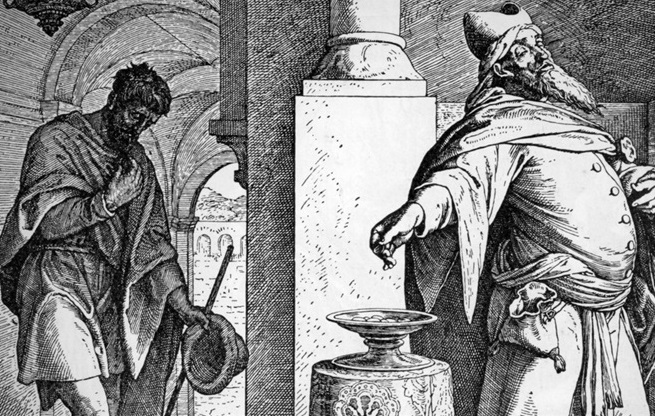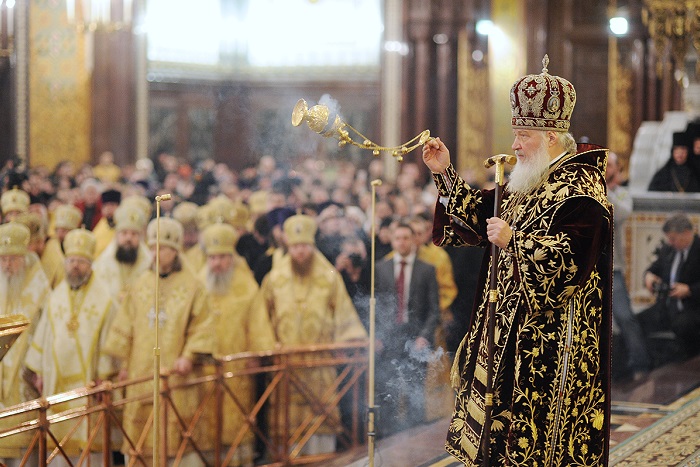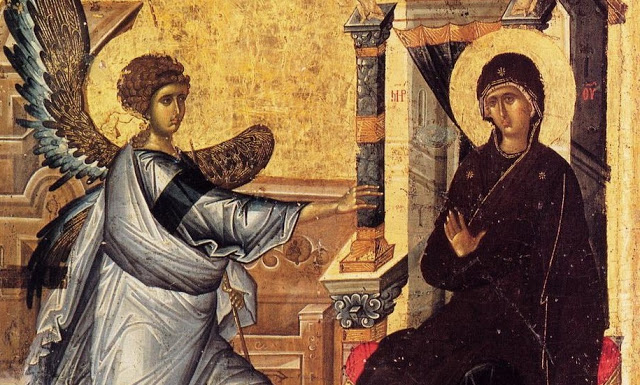
The power of the sign of the cross is known since the times of the holy apostles who performed miracles by it. Once, St John the Apostle found a sick man lying on the road in fever and healed him with the sign of the cross (St Dimitry of Rostov. Life of the Holy Apostle and Evangelist John the Theologian).
Saint Anthony the Great, speaking about the power of the sign of the cross against demons, said the following: “…Therefore, when demons come to you at night, wishing to foretell the future, or calling themselves angels, do not heed them, because they lie. If they praise your asceticism and exalt you, do not listen to them and do not bond with them in the least. Instead, overshadow yourself and your dwelling with the sign of the cross and pray. Then you will see them becoming invisible, because they are fearful and especially fear the sign of the Holy Cross, with which the Savior put them to shame, taking away their strength.” (The Life of the Reverend Father Anthony, Described by St Athanasius in his Epistle to Monastics Living in Foreign Countries. 35).
The Lausiac History describes Abba Dorotheos making the sign of the cross over water taken from a well, at whose bottom there was an asp and drinking it. “…At nine o’clock Abba Dorotheos sent me (Palladius) to get a tub of water from his well. It was already lunch time. Arriving at the well, I saw an asp at the bottom of it, and without drawing water I ran in fright, shouting, ‘We shall die, Abba, for at the bottom of the well I saw an asp.’ He smiled modestly, because he was very attentive to me, and, shaking his head, he said, ‘If the devil decided to throw asps or other poisonous reptiles into all wells and springs, would you not drink at all?’ Then, leaving his cell, he himself poured a tub of water and, making the sign of the cross over it, immediately drank from it and said, ‘Where there is the cross, the wickedness of Satan can do nothing.’”
Venerable Benedict of Nursia (480-543), known for his austere life, was elected hegumen of the Vicovaro cave monastery in 510. Saint Benedict zealously ruled the monastery, strictly observing fasts and not allowing the brethren to live according to their own will. Soon the monks began to regret having elected an abbot who did not suit their corrupted morals. Some of them decided to poison him. They mixed poison with wine and gave the abbot to drink during dinner. The saint made the sign of the cross over the cup, causing it to break by the power of the holy cross, as if struck by a stone. The saint knew that the cup was deadly, for it could not bear the Life-giving Cross” (St Dimitry of Rostov. Life of the Venerable Father Benedict).
Archpriest Vasily Shustin (1886–1968) recalls Elder Nektarios of Optina: “Father Nektarios once told me: ‘Shake out the samovar first, then pour in water. Often people forget to pour water and start to kindle the samovar. As a result, the samovar is spoiled, and they are left without tea. The water is in that copper jug in the corner; take it and pour it.’ I went to the jug, and found out that it was very large (about two buckets) and heavy. I tried to move it, but I was not strong enough. Then I wanted to bring the samovar to it and pour the water. Father Nektarios noticed my intention and repeated, ‘Take the jug and pour the water into the samovar.’ ‘Why, father, it is too heavy for me, I cannot move it.” Then the elder went up to the jug, crossed it and said, ‘Take it.’ I picked up the jug and looked at him in surprise. The jug felt light to me, as if it weighed nothing. I poured the water into the samovar and put the jug back with an expression of surprise on my face. The saint then asked me, ‘Well, is the jug heavy?’ ‘No, father. I am surprised, but it is quite light.’ ‘Remember once and for all that every assignment that seems difficult is very easily accomplished when treated as an obedience.’ I was truly amazed with how he was able to defy the force of gravity with one sign of the cross! (See: Shustin Vasily, archpriest. An essay about St John of Kronstadt and the Optina Elders. M., 1991).
Translated by The Catalogue of Good Deeds
Source: https://pravoslavie.ru/42104.html




